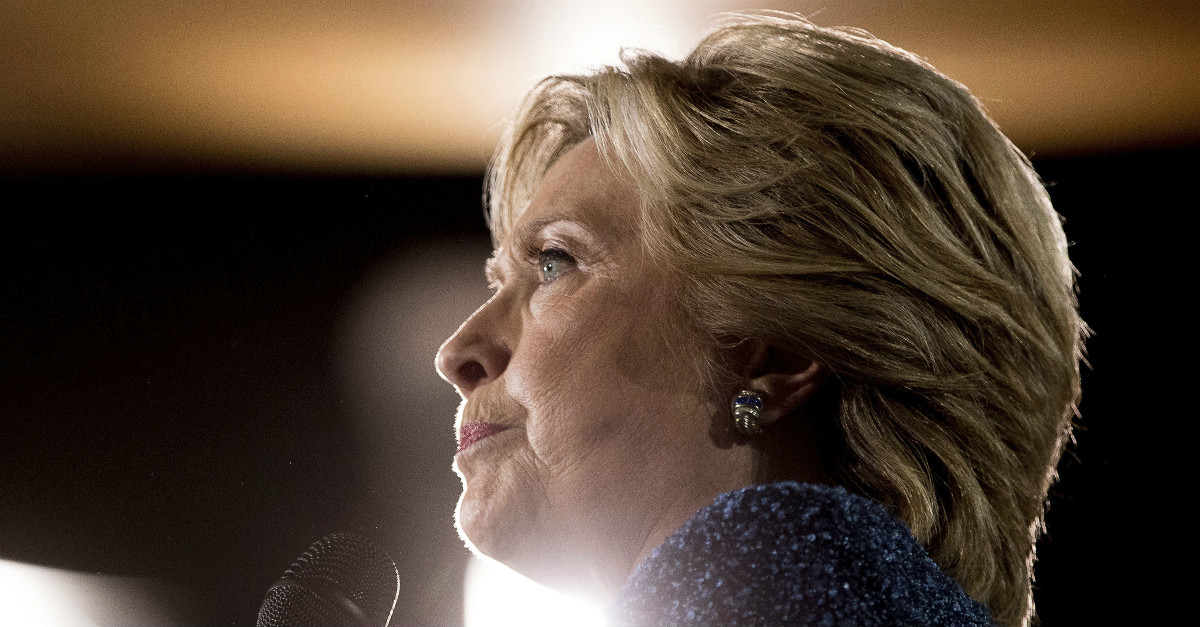One of the more maddening aspects of the 2016 presidential election for those of us who had opposed the Iraq War and the Obama administration’s reckless interventions in Libya and Syria was that Democratic nominee Hillary Clinton was in many ways indistinguishable from the Bush/Cheney-style Republican hawks that progressives used to oppose. In fact, many of those same neoconservative architects of the 2003 Iraq debacle supported Clinton over Republican nominee Donald Trump.
Videos by Rare
Interestingly, it was Trump who would end up bashing the Iraq War and even President George W. Bush. Remember “Bush lied, people died” from the 2003-era left? It was Trump who said in 2016, “They lied. They said there were weapons of mass destruction. There were none. And they knew there were none.”
RELATED: So far, Donald Trump has actually been tougher on Russia than Barack Obama
Now, Boston University political science professor Douglas Kriner and University of Minnesota law professor Francis Shen have conducted a study that suggests, “Trump’s ability to connect with voters in communities exhausted by more than fifteen years of war may have been critically important to his narrow electoral victory.”
The Kansas City Star reported on the study in July:
Three swing states — Pennsylvania, Wisconsin and Michigan — all went to Trump by thin margins. They also all had a median number of casualties statewide, with about 25 casualties per million residents.
[…]
The authors controlled for factors such as race, education, income, percentage of counties’ populations living in rural areas and counties’ population of military veterans.
“Even after including all these demographic control variables,” the authors wrote, “the relationship between a county’s casualty rate and Trump’s electoral performance remains positive and statistically significant.”
Kriner and Shen also noted in their study, comparing the 2016 and 2012 presidential elections, “Trump significantly outperformed Romney in counties that shouldered a disproportionate share of the war burden in Iraq and Afghanistan.”
Romney’s foreign policy positions, also generally indistinguishable from Clinton’s, were seen as more hawkish than President Obama’s in the 2012 election (however untrue this perception might have been).
So, according to this study, those most touched by war seem to be tired of it. Not surprising. This recent study is but the latest in a long line of analyses that have concluded the same thing.
Unfortunately, Trump’s foreign policy rhetoric during the campaign has not matched with his policies as president. But it is telling that in states where the burden of war was felt more, swing states that could have feasibly gone — and were expected to go — to Clinton, that burden seemed to be a significant factor.
Significant enough, even, to cost Clinton the election. The problem is, I don’t think Democrats have learned this lesson.
RELATED: Rand Paul just blocked the defense bill, and John McCain is not happy about it
Whereas Democrats once mocked Romney for daring to suggest that Russia posed a threat to the United States, the Dems’ current hysterical reactions to all-things-Trump have included taking foreign policy stances similar to those of hawkish Republicans. I once worried that a President Hillary Clinton would cement the Democrats as having an aggressive foreign policy outlook for years to come, but in some ways, this has happened anyway.
There was an antiwar voice on the left in 2016, but Bernie Sanders would eventually endorse Clinton, and in doing so, in my view, he undermined the potential to build principled progressive institutions similar to what antiwar libertarian Ron Paul accomplished on the right in the wake of his 2008 and 2012 presidential campaigns (Paul did not endorse Republican nominees McCain or Romney).
The 2003 antiwar left today is a distant memory.
Now if Donald Trump would actually live up to some of the foreign policy promises he made during the campaign, war-weary Americans could possibly get the relief many apparently voted for.
Disclosure: I worked for Ron Paul’s 2012 presidential campaign.



